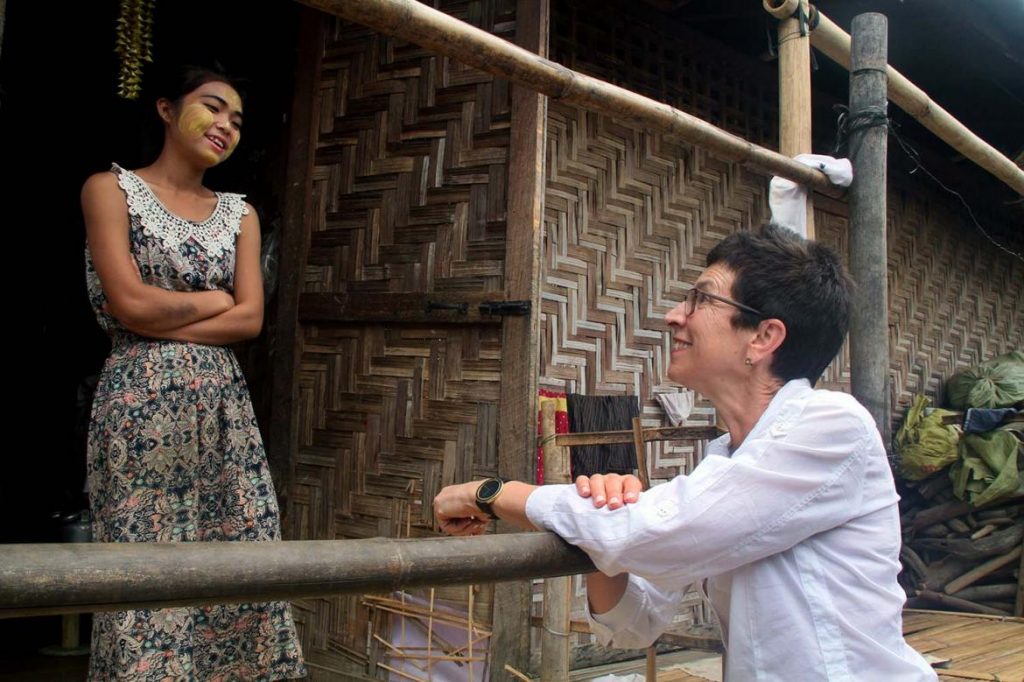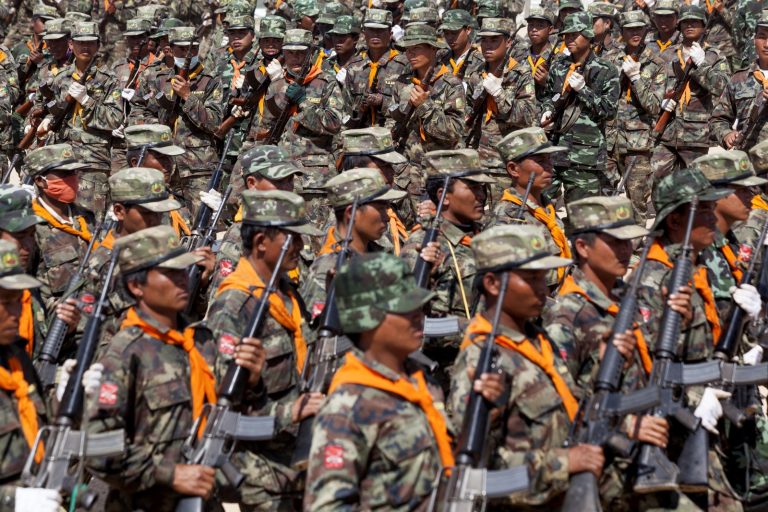By FRONTIER
YANGON — A senior United Nations official says it is “critical” that a national strategy being developed by the government to find solutions to displacement addresses the root causes of the problem.
The UN Assistant Secretary-General for Humanitarian Affairs and Deputy Emergency Relief Coordinator, Ms Ursula Mueller, also called on the authorities to work with all partners and the more than 270,000 people in camps to find durable solutions to displacement.
In a statement released by the UN Office for the Coordination of Humanitarian Affairs on May 14 after a six-day visit to Myanmar, Mueller underlined the right of displaced people to voluntarily return home, in safety and in dignity, or resettle in another location of their choosing.
Mueller said the closure of IDP camps must be linked to improvements in freedom of movement and access to services and job opportunities.
Support more independent journalism like this. Sign up to be a Frontier member.
During her visit she travelled to Rakhine State, where more than 700,000 people need humanitarian assistance, including 128,000 Rohingya and Kaman Muslims who have been confined to IDP camps since communal unrest in 2012.
“After seven years of displacement, the conditions in camps have deteriorated and are simply unacceptable,” Mueller said.
“Muslim people living outside of camps, whose freedom of movement and ability to access health and education is severely restricted, are also facing extremely difficult circumstances,” she said.
Acknowledging that the government has taken “some steps” to implement recommendations of the Advisory Commission on Rakhine State, Mueller said, “we must do more together to address the root causes of displacement and vulnerability”.
She expressed serious concern about the upsurge in fighting between the Arakan Army and the Tatmadaw, which has displaced more than 30,000 people in the last six months.
“The United Nations calls on all parties to uphold their obligations under International Humanitarian Law to protect civilians and allow access for humanitarian assistance,” she said.
The statement said many humanitarian actors had told Mueller of their concerns about complex and restrictive procedures for travel to reach affected people. She had stressed the importance of developing a simplified and flexible approach to ensure that impartial assistance could reach all people in need, it said.
During a trip to Kachin State, where fighting since 2011 has displaced more than 100,000 people, Mueller met IDPs and visited a new resettlement site.
“The situation in Kachin State remains challenging, but an impressive humanitarian operation continues, built on a strong partnership between local and international organizations,” said Mueller.
She expressed hope that the unilateral ceasefire by the Tatmadaw in Kachin and Shan states, which was recently extended by two months to the end of June, would be further extended.
“In Kachin, everyone spoke about how much they want peace, so they can go home,” Mueller said.







